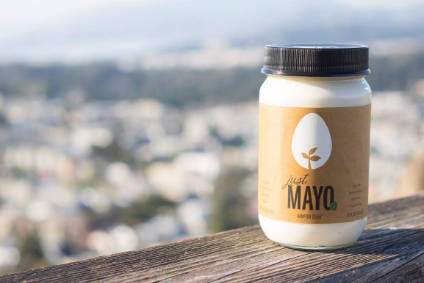
The US Securities and Exchange Commission is reportedly studying whether US firm Hampton Creek violated regulations by not revealing it was buying its own vegan mayonnaise Just Mayo from stores.
Bloomberg reported on Friday (19 August) the SEC is looking into the practice and weighing up whether Hampton Creek did not recognise revenue from the purchases properly.

Discover B2B Marketing That Performs
Combine business intelligence and editorial excellence to reach engaged professionals across 36 leading media platforms.
A spokesperson for the SEC declined to comment when approached by just-food today. Hampton Creek had not returned a request for comment at the time of writing.
However, Bloomberg said on Friday it had received a statement on the matter from Hampton Creek founder and CEO Josh Tetrick. “We’re aware of the informal inquiry and we’ll be sharing the facts, as opposed to the inaccuracies reported by Bloomberg,” Tetrick told the newswire.
Earlier this month, Bloomberg reported Hampton Creek used employees to support an undercover operation to buy hundreds of jars of flagship product Just Mayo while investors were sought to buy equity in the fledgling firm.
According to the newswire, Hampton Creek bosses “quietly launched a campaign to purchase mass quantities of Just Mayo from stores, according to five former workers and more than 250 receipts, expense reports, cash advances and e-mails reviewed by Bloomberg“.

US Tariffs are shifting - will you react or anticipate?
Don’t let policy changes catch you off guard. Stay proactive with real-time data and expert analysis.
By GlobalDataTetrick told CNBC: “We did absolutely have people call saying they were stoked about the company and the product. It didn’t really have any impact on what we were doing with the retailers, but as a young company you do everything you can to survive in the early days. We didn’t break any laws, we were open… we need to step back and look at the context of this.”
He argued it was “incredibly misleading” to suggest the project was designed to influence potential investors in the company.
Tetrick said Hampton Creek had spent just US$77,000 on the buy-up project, which he said was less than “the company has spent on snacks this year”. He said the project began in 2013, “the bulk of it ended in 2014 and to some extent we still do it today”.
In addition to using employees, Tetrick said the company had used contractors and volunteers for the project. The primary purpose was to identify and fix initial issues with product packaging such as poorly affixed labels and lids. But he said: “As a secondary reason, and much more unimportant reason that I have always been open about, we wanted to see right in the beginning if we could get a little lift. It turned out not to have any impact at all. There are elements that we absolutely still do today… getting perfect as a young company is always what has to be done.”
Asked how Hampton Creek accounted for sales and acquisitions of products it purchased as part of the project, Tetrick said: “Well, of course, we expensed it, as one would expect. We are not farmers’ markets, we’re selling in thousands of stores all across the country. In this ‘great mayo buyout in 2014’ as reported by Bloomberg ,it was noted that ‘hundreds of jars were not accounted for’.”
However, Tetrick said: “We sell millions of jars. Everything we’ve done we’ve always been open about it. The primary purpose was QA and QC. It made us so much better and, if I had to go back and do it again, of course I would do it again.”





